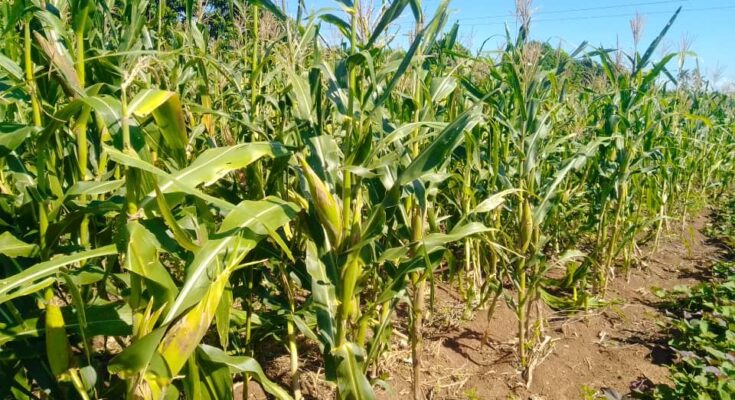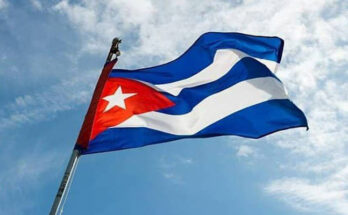In Cuba, agricultural extension is considered an emerging discipline in the last twenty years. Its origin in our country was in the 50s of the last century for commercial purposes of machinery and agrochemicals, then it was limited to technology transfer. But it was not until 2000 that the Caribbean nation created an extension system.
Training and communication activities would be integrated into the activities of the research centers or the planning and control system of the Ministry of Agriculture administration. In this way, the evolution, development and improvement of agricultural extension would permit a dynamic link between scientific research and agricultural production.
In our country, numerous and varied forms of extension coexist, ranging from swine, tobacco, citrus, urban agriculture, forestry to the very well known by farmers, called Agricultural Extension System in the Agroecological Movement from Farmer to Farmer.
In recent years, several producers in the province of Santiago de Cuba have joined the program for the improvement of the agricultural extension system in grain production. This project was initially led by the Grain Research Institute with the collaboration of the Japan Cooperation Agency, known by its acronym Jica.
Currently, the Central Unit for Experimental Research on Jucarito Grain, located in the province of Granma, serves the five eastern provinces.
In the case of Santiago de Cuba, 60 producers make up the extensionist movement for grain improvement. Eighty-seven percent are located in the municipality of Contramaestre. Of the nine municipalities in the province of Santiago de Cuba, only five have a presence of this movement. Therefore, one of the system’s work projections is to reach the rest of Santiago’s territory and have a membership of one hundred extensionist producers.
The system has had among its achievements the incorporation of young women producers, which demonstrates the gender work done by the program. By the end of 2023, eight female extensionist producers are members of the movement. One of them is the well-known Laritza Brizuela, the only female rice harvester in the province of Santiago.
Currently, agricultural extension in the southeastern municipality of Contramaestre is working on education, extension and agricultural training programs to ensure that information on new technologies, plant varieties and cultural practices reach farmers and those who need it most.
Extension work is essentially the means by which new technical and scientific knowledge is introduced into rural areas in order to bring about change and improve the quality of life of farmers and their families.
The agricultural extension process is based on relationships of trust between producers and extensionists, thus achieving a flow of information.
In our country there coexist numerous and varied forms of extension that have the mission of contributing to the competitive and sustainable development of the forms of production.
There are currently fifty-three extension producers in the municipality of Contramaestre. This system has facilitated access to varieties of excellent genetic quality, high productive potential and the empowerment of producers with environmentally friendly technologies. These results have allowed the implementation of one of the two existing demonstration areas in the province of Santiago de Cuba.
Much remains to be done by extensionists in terms of transforming the thinking of farmers regarding the use of these new varieties. This will only be achieved with the joint work of all the actors involved.
Continuing with agricultural education, extension and training programs to ensure that information on new technologies, plant varieties and cultural practices reach farmers and those who need it most will continue to be the challenge of this grain extension movement in the province of Santiago de Cuba.
Increasing national production of rice, beans, corn, sorghum and soybeans is one of the Cuban government’s goals, which are included in the development agenda. Achieving import substitution and a high level of food self-sufficiency will be the focus and commitment of the extensionist movement.
Achievements of the extension movement in the province of Santiago de Cuba
The agrarian extension system for the production of basic grains in the province of Santiago de Cuba has brought several benefits in recent years, including the introduction of different varieties of grains.
Diversification has not only focused on the different varieties of corn, of which the program already has six of them in production, throughout the territory of Santiago, mainly in the municipality of Contramaestre.
This system of agricultural extension of grains has introduced 9 varieties of soybeans, 25 varieties of commercial beans, 1 variety of pigeon peas, 6 varieties of cowpea beans.
The program takes into account soil conservation and protection as well as the effects of climate change and actions to cultivate plantations resistant to environmental effects. This work is carried out in conjunction with the country’s grain institutes, universities, organizations, local governments and the main producers involved in the project. Objectives that seek to achieve sustainability and food security in this indispensable productive line in the substitution of imports.




